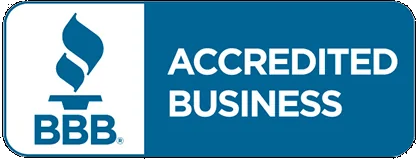FHA Loans
What is an FHA Loan?
Are you considering purchasing your first home? Or are you worried about meeting the financing requirements of a Conventional mortgage? An FHA loan may be your best option. FHA loans offer simple, flexible guidelines that make the process easier for first-time homebuyers. With lower credit score requirements and smaller down payments, FHA loans make approval more achievable, while still offering competitive interest rates.
An FHA home loan is a mortgage backed by insurance from the Federal Housing Administration (FHA). The FHA operates under the U.S. Department of Housing and Urban Development (HUD), which manages the FHA and administers various mortgage loan programs aimed at promoting homeownership, affordable housing, and related goals. The FHA was created in 1934 to help people purchase homes when the housing market crashed. The loan product is designed for low-to-moderate-income borrowers and offers more flexible lending requirements than conventional home loans.
Additionally, FHA loans include paying two types of mortgage insurance premiums: Up Front Mortgage Insurance Premium (UFMIP) at 1.75% of the base loan amount which the borrower can pay as a lump sum in cash or include it in the loan amount, and an Annual MIP at .55% which is included as part of their monthly payment.
Comparing FHA and Conventional Loans: Which is Right for You?
When it comes to financing options for your home purchase or refinance, both FHA and Conventional loans offer flexibility with a similar approval process. However, it's essential to know the differences between them to determine which option is best for you. While FHA loans are government-backed, eliminating the strict qualification requirements of Conventional loans, they require a Mortgage Insurance Premium (MIP) which is paid both upfront by adding 1.75% of the base loan amount to your loan balance and annually at .55% per month during the life of each loan. This premium insures lenders against any losses, allowing them to offer more flexible qualification requirements, including lower credit scores, and low down payment options starting at 3.5% of the home's value.
These benefits make FHA loans a popular choice among first-time homebuyers looking for flexible financing options.
How do you qualify for an FHA Mortgage Loan?
Anyone can apply for an FHA loan, even if they do not have perfect credit. If you're considering an FHA purchase loan, here are some of the key requirements you should know about:
Credit score of 580 or higher - Although this may vary depending on other factors like your debt-to-Income ratio and down payment amount.To qualify through underwriting evaluation, you'll need to show documentation of consistent income with a Debt-to-Income ratio at or below 50%. This ratio indicates the portion of your monthly income that goes towards paying your debt. You'll also need to provide employment verification and history. A down payment of 3.5% or more of the home's value is required, but this minimum may increase based on your credit score and financial circumstances. Gift down payments are allowed. The home must be your primary residence, and it has to meet minimum property standards as determined by an inspection. You must move into the home within 60 days of closing your new loan. You may still be eligible even if you've experienced a foreclosure within the past three years.
Proof of 2 years employment and income - This will be used to show stability and will require 2 years Federal Tax Returns, W2's and one full month of recent paystub's.
Your debt-to-income (DTI) ratio typically should be no more than 43% of your monthly income - However the program does allow for a maximum ratio of 57% depending on compensating factors such as a high credit score, additional assets or increased down payment amount.
Minimum down payment of 3.5% of the home's value is required - However, this amount may increase depending on your credit score and financial situation. Gift funds are allowed from documented gift sources such as a borrower’s immediate family member, a borrower’s employer or labor union, a close friend with a clearly defined interest , charitable organization or any governmental agency assisting low-to-middle income families.
The house needs to be your primary residence and adhere to "minimum property standards" - To assess a property, a home inspection is necessary. This entails evaluating the condition of the electrical wiring, heating and cooling systems, and roof of the house. However, it's important to note that the inspection does not take into account the property's cosmetic features. The FHA appraiser will be analysing the home from a health and safety perspective and specifically looking for issues surrounding: hazardous materials, toxic substances, mold, damaged or defective asbestos, urea-formaldehyde, problems with insulation, radon gas and chipping paint.
Additionally, there are restrictions on the location of power lines as they cannot pass directly over any dwelling or any structure related property improvement, including pools and spas. FHA also doesn’t approve loans on properties within 300 feet of a tank containing more than 1,000 gallons of flammable or explosive material.Additional FHA Loan Required Documents - 2 full months bank statements, ID (driver's license, passport, etc.)
Stay within FHA loan limits for the are the property is located.
An FHA loan is a great option for borrowers who want to buy a home but have less-than-perfect credit or who do not have a large down payment saved. If you're considering a FHA home loan, be sure to contact Onshore Mortgage to learn more about the process and how to qualify.
Benefits of FHA Loans?
There are many benefits associated with getting an FHA loan, including:
Allowing more people access to homeownership by allowing for smaller down payments.
Help homebuyers with lower credit scores qualify for a loan
Multiple loan terms available: 30-year fixed-rate, 15-year, etc.
Available on 1-4 family properties.
What are the FHA Loan Limits in Massachusetts?
In Massachusetts, the FHA loan limits are determined by the number of units in the property and the county it is located in. It's important to note that these limits are subject to annual updates, emphasizing the need to check back regularly for the latest information and revisions. Additionally, while FHA mortgage loans are a popular choice for many first time homebuyers, there are also alternative options such as Conventional Loans or VA Loans. Each option comes with specific maximum loan limits and prerequisites. Making an informed decision on the most suitable mortgage type for your individual financial circumstances and goals is crucial.

What are the FHA Loan Limits in Rhode Island?
If you're interested in taking out a FHA mortgage in Rhode Island, it's important to keep these loan limits in mind to ensure you're eligible for financing.

Is it possible to qualify for an FHA loan if I have experienced a recent bankruptcy?
In the realm of FHA loans, having a recent bankruptcy may not necessarily disqualify you for a mortgage. It is generally required that a borrower has reestablished at least two credit accounts (such as a credit card or car loan) and has waited for a period of at least 2 years since the discharge of a "Chapter 7" bankruptcy. For those borrowers who have undergone a "Chapter 13" bankruptcy, a minimum of 1 year of repayment is necessary, along with seeking permission from the courts. Additionally, it is crucial for the borrower to maintain a clean credit history without any late payments, collections, or credit charge-offs following the discharge of the bankruptcy. In exceptional cases, where borrowers have faced extenuating circumstances, such as surviving a serious illness like cancer, leading to bankruptcy due to overwhelming medical bills, special considerations may be made. However, these instances are rare and evaluated on a case-by-case basis.
If you would like to apply for an FHA loan in Massachusetts or Rhode Island, be sure to contact Onshore Mortgage to learn more about the process and how to qualify.
*Credit and income restrictions do apply. Please visit our Disclosures page for a detailed breakdown of all loan types.

.webp)

